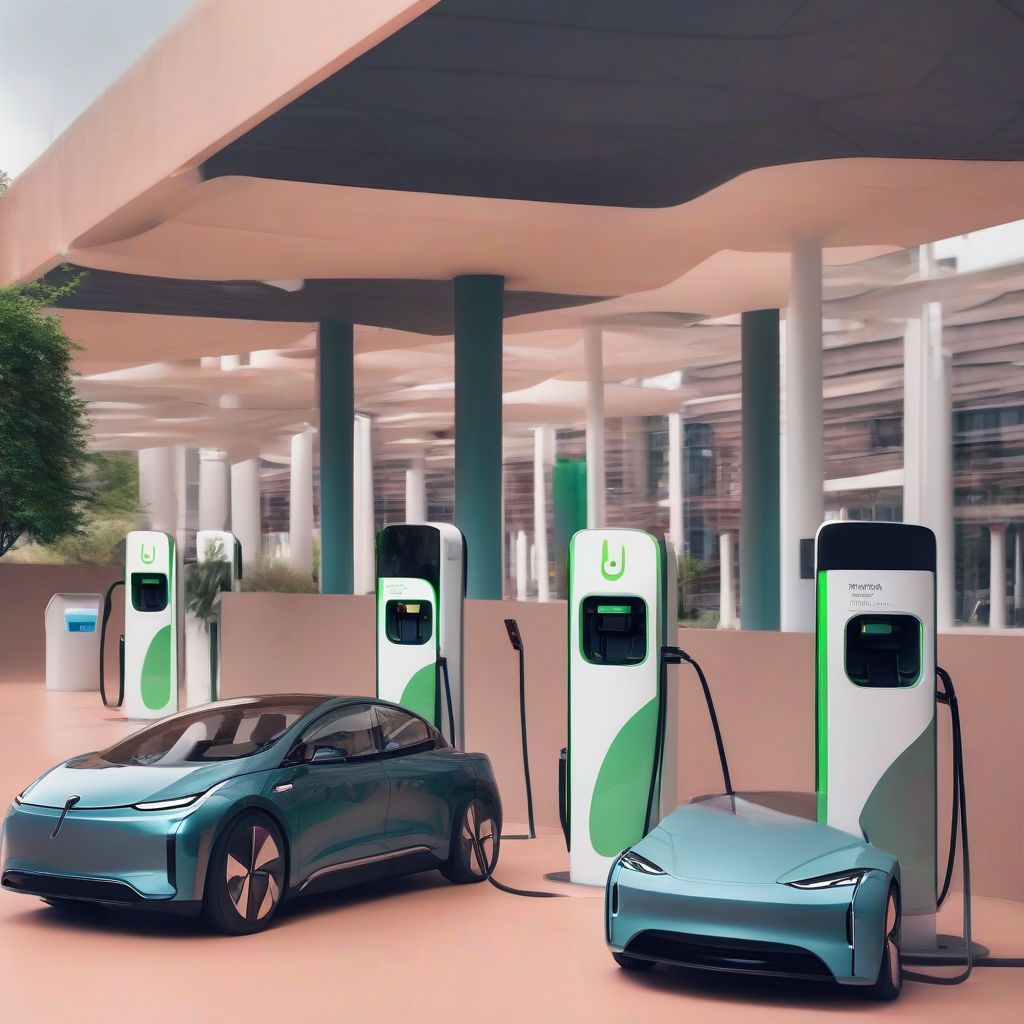Imagine a world where traffic jams aren’t accompanied by the choking smell of exhaust fumes, where your car runs silently without guzzling down fossil fuels, and where the impact of transportation on our planet is significantly minimized. This isn’t a scene from a futuristic movie; it’s the reality being shaped by sustainable technology in the automotive industry today.
The automotive industry, for decades a significant contributor to environmental concerns, is undergoing a monumental transformation. Driven by a global push for cleaner energy and a reduction in carbon emissions, sustainability is no longer just a buzzword; it’s a core principle driving innovation. From electric vehicles (EVs) to hydrogen fuel cells and beyond, the way we think about and interact with vehicles is changing, paving the way for a greener future.
The Rise of Electric Vehicles: A Silent Revolution
At the forefront of this sustainable revolution are electric vehicles. Once considered a niche market, EVs have gone mainstream, with major manufacturers offering a diverse range of models to cater to different needs and budgets. This surge in popularity is fueled by several factors:
- Environmental Concerns: EVs produce zero tailpipe emissions, playing a crucial role in mitigating air pollution and combating climate change.
- Technological Advancements: Improvements in battery technology, particularly in terms of range and charging time, are addressing previous consumer concerns.
- Government Incentives: Many countries offer tax breaks, subsidies, and other incentives to make EVs more affordable and encourage adoption.
 Electric Vehicles Charging at a Station
Electric Vehicles Charging at a Station
[amazon bestseller=”electric vehicles”]
The Battery Revolution: Powering the Future
The heart of any EV is its battery, and advancements in battery technology are happening at a breakneck pace. We’re seeing:
- Increased Energy Density: Batteries are becoming smaller and lighter while holding more energy, translating to longer ranges for EVs.
- Faster Charging Times: The development of rapid charging infrastructure is making it easier and more convenient to “refuel” EVs.
- Sustainable Battery Production: Research into sustainable sourcing of battery materials and efficient recycling processes is minimizing the environmental impact of EV batteries.
Beyond Electric: Exploring Alternative Fuels
While EVs dominate the conversation, the quest for sustainable transportation extends beyond electric power. Hydrogen fuel cells, for example, offer another promising avenue:
- Zero Emissions: Like EVs, hydrogen fuel cell vehicles emit only water vapor.
- Fast Refueling: Refueling a hydrogen fuel cell vehicle is similar to filling a gasoline tank, taking just a few minutes.
- Long Range: Hydrogen fuel cells offer the potential for longer driving ranges compared to some battery-powered EVs.
Overcoming Challenges: Building a Sustainable Infrastructure
The shift towards sustainable transportation requires more than just innovative vehicles; it demands a complete overhaul of our existing infrastructure.
- Charging Infrastructure: A robust and widespread network of EV charging stations is crucial for wider EV adoption, addressing range anxiety and ensuring convenient charging options.
- Renewable Energy Sources: The environmental benefits of EVs are maximized when they’re charged using renewable energy sources like solar and wind power.
- Hydrogen Production and Distribution: For hydrogen fuel cell vehicles to become viable, an efficient and cost-effective network for producing and distributing hydrogen is essential.
The Connected Car: Sustainability Through Intelligence
Emerging technologies like artificial intelligence (AI) and the Internet of Things (IoT) are playing a significant role in making vehicles more sustainable.
- Predictive Maintenance: AI algorithms can analyze vehicle data to predict potential issues before they arise, reducing breakdowns and optimizing maintenance schedules.
- Eco-Driving Assistance: Connected cars can provide drivers with real-time feedback on their driving habits, promoting fuel efficiency and reducing emissions.
- Traffic Optimization: By connecting vehicles and infrastructure, smart cities can optimize traffic flow, reduce congestion, and minimize idling times, leading to significant fuel savings and reduced emissions.
The Future of Sustainable Mobility
The journey toward a truly sustainable automotive industry is ongoing, but the progress made so far is undeniable.
- Autonomous Vehicles: Self-driving cars, powered by sustainable energy sources, have the potential to revolutionize transportation systems, making them safer, more efficient, and environmentally friendly.
- Shared Mobility: The rise of ride-sharing platforms and car subscription services promotes the use of newer, more efficient vehicles and reduces the overall number of cars on the road.
- Sustainable Manufacturing Practices: Automotive manufacturers are increasingly embracing sustainable practices throughout their supply chains, from sourcing materials responsibly to reducing waste and emissions in production processes.
The automotive industry is undergoing a profound transformation, and sustainable technology is the driving force behind this change. As we move towards a future of cleaner, more efficient, and connected mobility, embracing these advancements is no longer an option; it’s an imperative. The road ahead is clear, and it’s paved with innovation, driven by a commitment to creating a greener and more sustainable future for generations to come.
